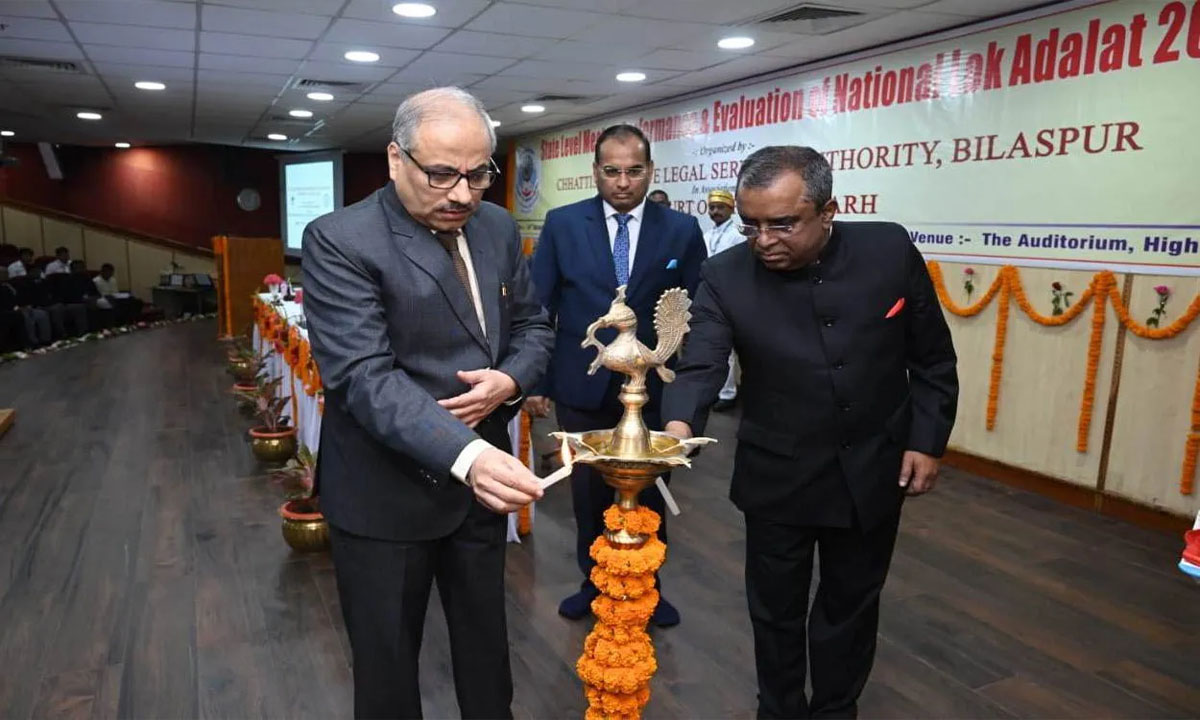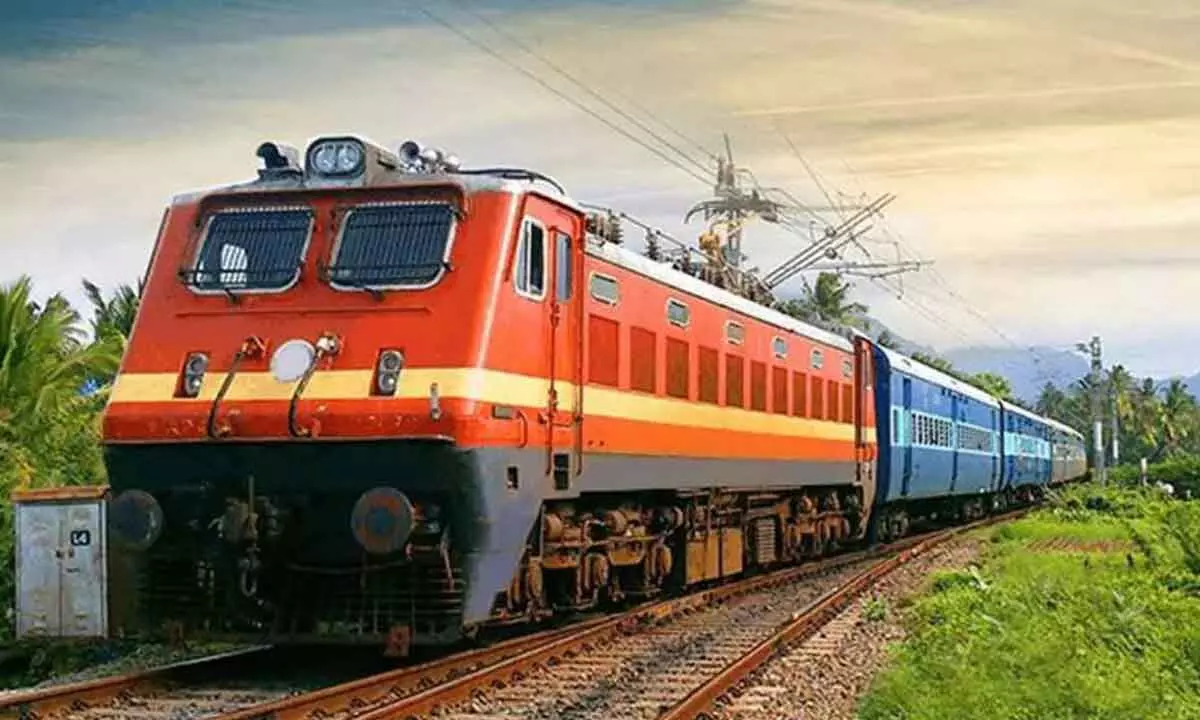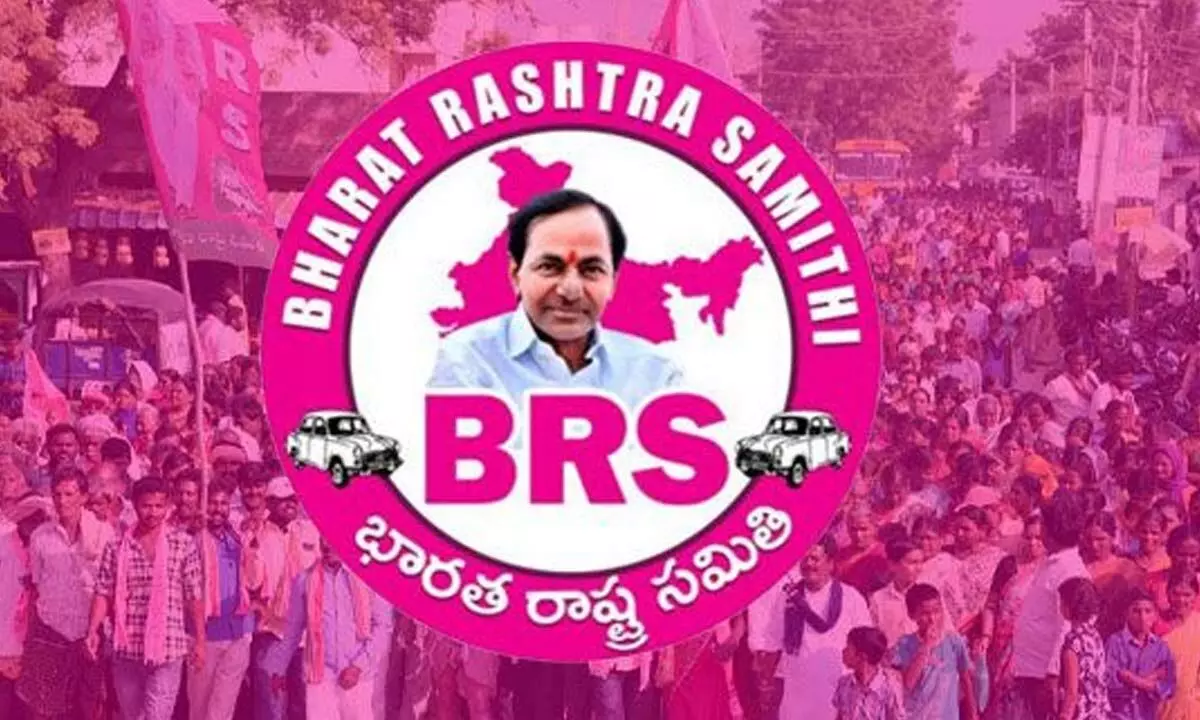For the first time in Chhattisgarh, a program was organized on the performance and evaluation of National Lok Adalats.

Raipur. Under the joint aegis of Chhattisgarh State Legal Services Authority and Chhattisgarh High Court, a state level meet was organized at Chhattisgarh High Court, Bilaspur for the evaluation and execution of National Lok Adalats to be organized in the year 2023. The chief guest of the program was Shri Ramesh Sinha, Chief Justice of Chhattisgarh and Chief Patron of Chhattisgarh State Legal Services Authority. Along with this, the special guest was Mr. Gautam Bhaduri, Judge of Chhattisgarh High Court and Executive Chairman of Chhattisgarh State Legal Services Authority, Mr. Sanjay K., Judge of Chhattisgarh High Court and Chairman of High Court Legal Services Committee. It was Agarwal. Judges of Chhattisgarh High Court were present on this occasion. Chief Justice Shri Ramesh Sinha, while addressing the judicial officers, said that for the first time, a State level meeting was organized in the Chhattisgarh High Court to evaluate the special work done by the judicial officers and to appreciate the performance in the National Lok Adalats held so far in 2023. Has been done
He said that the introduction of Lok Adalats as a component of alternative dispute resolution systems has not only added a new chapter but also provided a new dimension to the justice delivery system of the country. This has provided victims with a complementary platform for satisfactory resolution of their disputes. This system is based on the Gandhian principles of Gram Swaraj and seeks to promote and fulfill the provision of Article 39A of the Constitution of India, which aims to provide equal justice and free legal aid to all. Chief Justice Ramesh Sinha said that since ancient times it has been believed that disputes should be resolved amongst themselves without approaching the court. In villages, disputes were always referred to Panchayats, so that they could decide on disputes arising in the village. In the Panchayat system, the words Panch-Mediator and Panchayat are as old as Indian history. The members of the Panchayat (Panch) then used the principles of negotiation mediation to bring the aggrieved parties to a consensus and agreement. Therefore, it can be said that the process of ADR is prevalent in India as an ancient practice even at the grassroots level. The advantage of ADR is the reduction in costs besides avoiding delays in litigation.
Chief Justice Shri Sinha said that three National Lok Adalats have been organized in the state, in which a total of 11,78,357 (eleven lakh seventy eight thousand three hundred fifty seven) cases were resolved, out of which more than 10 lakh cases were of pre-litigation. He congratulated him for the efforts made to resolve the cases. He said that with time Lok Adalats have gained the trust of the people by settling the disputes in an effective and amicable manner. To maintain faith in the system, it is imperative for every presiding member of the Lok Adalat to make sincere efforts in bringing about a conciliation settlement based on the principles of justice, equity and fairness. Legal Services Authorities should ensure that the rules laid down in the National Legal Services Authorities (Lok Adalats) Regulations, 2009 are followed while operating Lok Adalats.
Shri Sinha appreciated the commitment and dedication of the presiding judges of Lok Adalats and congratulated them for their achievements. He said that this is not the final destination, but we still have a long way to go. Dedicated and honest efforts, no matter how small, yield desired results. He also inspired for good results in the upcoming Rashtriya Lok Adalat to be held on 9 December 2023. Shri Sinha said that there are many expectations from the judiciary, yet some key areas deserve our attention. Firstly, it is important for judges to enhance their knowledge and understanding of the law to ensure accurate interpretation and application of legal principles. Secondly, the judge must ensure that judicial proceedings are conducted in a prompt and timely manner. Adhering to the principles of natural justice, avoiding unnecessary adjournments and adopting technology-driven solutions can help in streamlining the process and expediting justice delivery. He said it is essential for judges to maintain a high level of integrity and ethical conduct along with transparency and accountability.
















